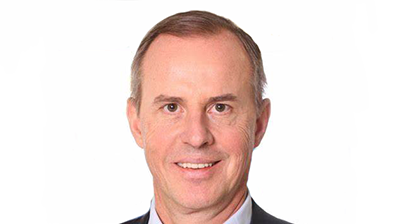
APCOA has announced plans to deploy up to 100,000 new EV charging stations in its parking facilities by 2035. As part of its new EV strategy, APCOA will make the investment to expand its AC charging infrastructure. In parallel, strategic partners from the automotive industry as well as energy and charging infrastructure providers will deploy additional 1,000 fast-charging stations across APCOA’s dense location network.
A new digital platform developed by APCOA will support the charging infrastructure which will be ready for non-proprietary hardware and can be operated independent of charge point ownership. This open and compatible set-up allows the integration of multiple partners and services and represents a unique proposition in the market. The APCOA FLOW and APCOA Connect apps will serve as the front-end to the parking customer: They will be able to conveniently manage the entire EV charging process as well as additional value-added service including locating, booking and payment.
“The transition to electric mobility as the dominant technical solution in road traffic is an irreversible trend. EV charging infrastructure thus represents a major component of the transformation of APCOA’s car parks into ‘Urban Hubs’. For customers, the extended service infrastructure will increase the attractiveness of our locations. For us as an operator, we see substantial revenue potential from upgrading our parking sites with EV charging and other Urban Services”, explains Philippe Op de Beeck, CEO of APCOA PARKING Group. In keeping with its commitment to carbon neutral solutions, APCOA’s charging infrastructure will run primarily on green energy.
In this context, the decision by the European Parliament to ban sales of new cars with combustion engines from 2035 is a highly significant development. A recent study from the market analysts at Dynata confirms that consumers are increasingly willing to choose an electric vehicle, even in countries that have so far been somewhat reluctant to make the transition: 64 per cent of Germans expressed an interest in buying an electric or hybrid vehicle.
Furthermore, numerous countries have already enacted regulations to equip up to 30 per cent of public parking areas with EV charging stations, which will need to be implemented over the next few years. APCOA will work in partnership with its clients, the owners of the parking facilities, to deliver the roll out of these charging facilities, upgrading the energy grid where necessary, to offer EV users an optimal charging experience in accordance with their needs and expected parking time.
To date, around 2,500 EV charging stations are available in car parks operated by APCOA. Based on data collected from these charging stations, APCOA expects the demand for charging stations to further increase significantly in the near future as the number of EVs continues to grow. The business generated by this new charging infrastructure aligns well with APCOA’s core parking business. It offers users attractive value-added functionality and complements the wide range of additional services in the fields of urban logistics, mobility, and technology services. The offering is being provided on a site-specific basis under the APCOA URBAN HUBS brand.
“We firmly believe in the future of electric mobility, which stands to make an important contribution on the net zero journey. Therefore, we are creating the necessary infrastructure to play our part in meeting the international decarbonisation targets. As a company, we strive to shape our growth sustainably to create a livable and green future. In recent years, we have continuously worked to implement a wide range of ESG measures and have combined our sustainability activities in a group-wide ESG program. In doing so, all measures are aligned with the UN Global Compact agreement to which APCOA is a signatory”, says Philippe Op de Beeck.

